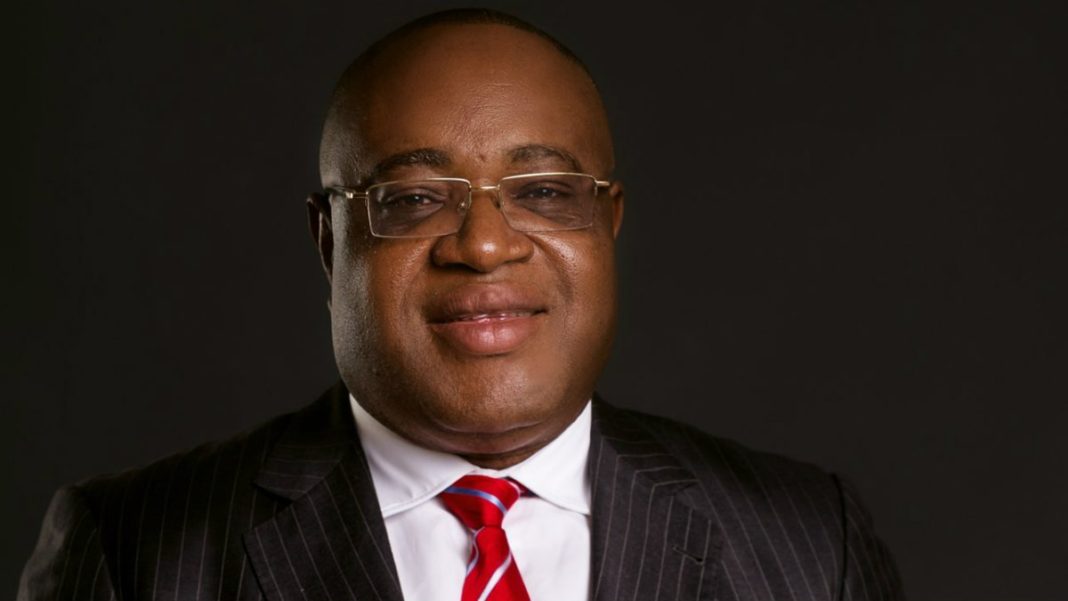By John Meze
Dr. Gabriel Ogbechie, the Group Managing Director(GMD) and Chief Executive Officer (CEO) of Rainoil, has stated that the full deregulation of the downstrean subsector of the oil and gas industry of the nation would, among other things, bring about cost savings for the government and increase funds for critical infrastructure as well as grow other sectors of the economy.
Dr, Ogbechie, who was speaking during a one-day virtual seminar, tagged,”Deregulation and Sustainable National Energy Future Through Natural Gas,” organised by the Nigeria Association of Energy Correspondents (NAEC). He said that aside from ensuring the removal of subsidy to the subsector which gulped about N10.413tn between 2006 and 2019, the removal of subsidy will enable marketers to freely source products and leverage supply chain options which provides a more level playing field, increase competition which will improve efficiency and customer-service, allow for better planning and forecasting by marketers as well as fully liberalize the sector in order to attract Foreign Direct Investment (FDI).
Speaking on the current uncertainty over petrol price and challenges, the Rainoil boss, who noted that the Nigerian National Petroleum Corporation (NNPC), has remained the sole importer of Premium Motor Spirit (PMS) and that the Federal Government had paid N725 billion as petrol subsidy in 2019 and spent over N101.65billion on subsidy in Q1 2020, revealed that in March 2020 during the blaze of Covid-19, subsidy was “discontinued” by the PPPRA following the crash in the global crude oil prices due to price modulation.
He said that PMS pump price was moved from N145/ltr to N125/ltr as landing cost of PMS was N99.44 per litre(/ltr ). “As crude oil prices recovered and PMS landing cost increased, PMS pump price was moved to N143.8/ltr in July 2020, N151.56/ltr in Sept 2020, N162/ltr in October and N165/ltr in November 2020.
In February 2021, subsidy element “returned” as crude price hit $64 per barrel (/bbl) and landing cost of PMS increased to N186.33/ltr (while pump price remained at N165/ltr),” he added.
He, further stated that in March 2021, crude price averaged $67/bbl thereby increasing landing cost of petrol to N189.61/ltr whereas fuel subsidy in March 2021 is estimated at N102.96bn.
Dr. Ogbechie observed that lack of clarity from the Ministry of Petroleum on the pricing regime (current and future) has resulted in inconsistent communications from industry agencies, increased speculation by marketers (buy-sell decision making), inconsistent supply of product, panic buying by the public and hike in transportation fares and product prices.
Taking a look at the prospects of the downstream sub- sector after the Petroleum Industry Bill (PIB), he said that the margins would be expected to be tighter as competition would drive down PMS pump price since the bill proposes four distinct players in the sector, which are the Ministry of Petroleum Resources, who would be empowered to formulate, monitor and administer government policy in the petroleum industry, the Nigerian Upstream Regulatory Commission (The Commission) which will take over most of the upstream regulatory functions of the DPR and its functions would include; administer and enforce policies and regulations on upstream petroleum operations, administer and enforce compliance on the issuance of licenses and leases as well as publish upstream sector reports and statistics.
Speaking, further on Downstream Sector after the PIB, he said ” The Nigerian Midstream and Downstream Petroleum Regulatory Authority (The Authority): PEF and PPPRA will be merged into one regulator with technical and commercial regulatory responsibilities including: administer and enforce policies, laws and regulations for midstream and downstream petroleum operations, market monitoring and promotion of competition, oversee tariffs for transportation by pipelines, bulk storage for petroleum products, and regulated open access facilities and govern the implementation of the Nigerian Gas Transportation Network Code. The Nigerian National Petroleum Company Limited: created as a successor company to the NNPC and is to be established within six months of the Bill passage.”
On the Government’s policy on alternative energy and the Global Drive for Energy Transition, he stated that government’s sustainable national energy plan seeks to, among other things, deliver and maintain five million new off-grid solar connections under a “solar power strategy”.


